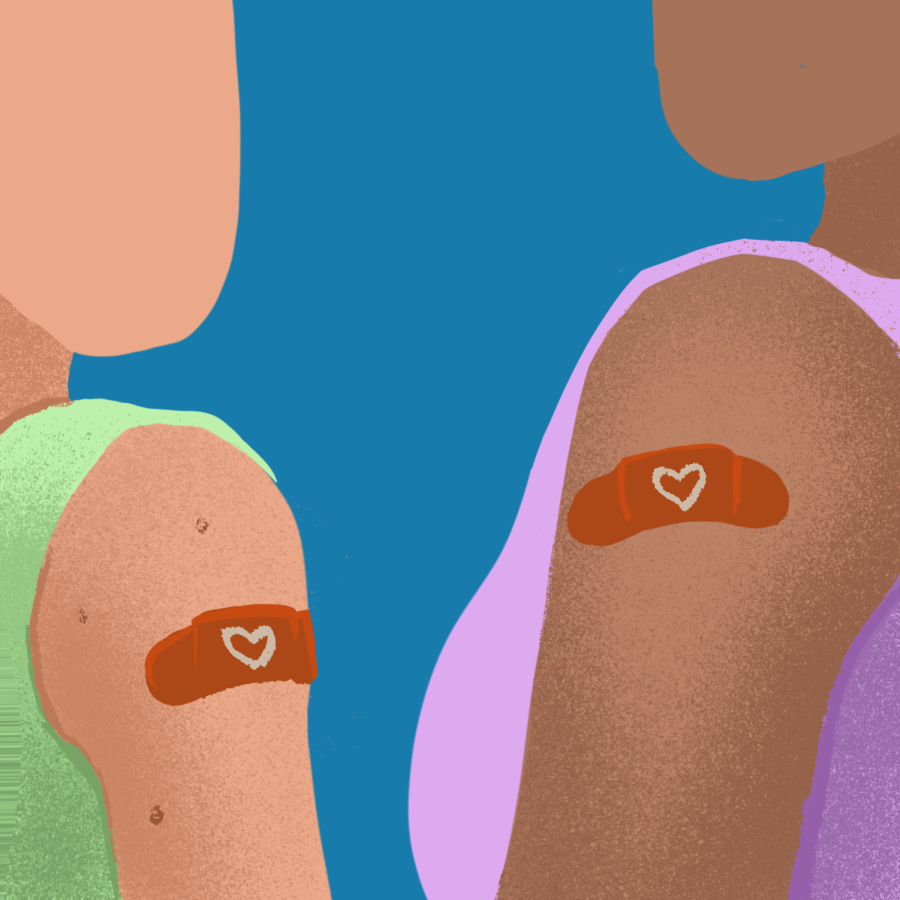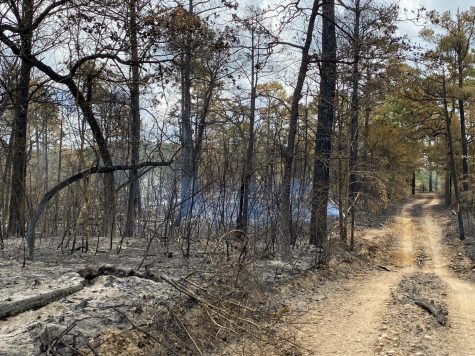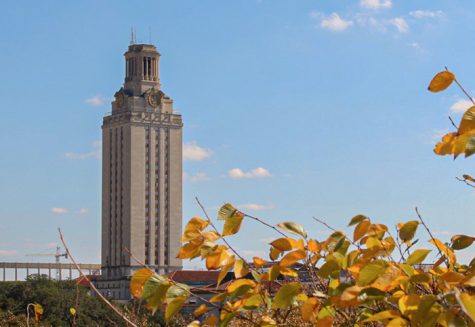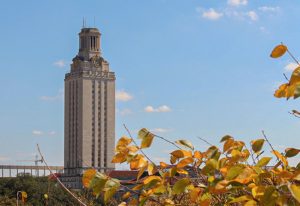UHS begins roll out of updated COVID-19 booster vaccination on campus
September 16, 2022
UT students, faculty and staff can receive the new bivalent COVID-19 booster on campus as of Wednesday, the result of a partnership between University Health Services and the School of Nursing.
The new booster vaccine offers updated protection from the most recent strains of the omicron variant, said Darlene Bhavnani, an assistant professor in the population health department at Dell Medical School.
“The new formulation includes mRNA that is specific to the original vaccine … as well as the BA.4 and BA.5 spike,” Bhavnani said. “Someone would be … more protected against BA.4 and BA.5 than what the original booster would have provided.”
The booster is offered at the School of Nursing’s Family Wellness Center. While the first appointments started Wednesday, all time slots were rapidly filled due to the limited number of doses, said Charlotte Katzin, the nurse manager of UHS’ Allergy, Immunization and Travel Clinic.
“This week, we were able to get 120 doses from (the School of Nursing), which is pretty limited for the number of people that we have on campus,” Katzin said. “We’re hoping that (soon), we can get enough vaccines to open up some more appointments.”
UHS will likely continue to have limited booster vaccine appointments as it focuses its efforts on gearing up for its annual flu shot clinics, which Katzin said begin in two weeks.
“We’ll see what we can do to potentially provide the vaccine on a really limited basis, either possibly during the flu shot campaign or afterward,” Katzin said.
Katzin said community members can receive the flu vaccine during their COVID-19 booster appointment, which is encouraged as experts predict an early flu season.
“We are seeing the flu on campus already,” Katzin said. “We’re actually expecting that we’ll have more flu (cases) in the fall than we typically would, so getting a flu shot now or anytime through the end of October is the recommended time each year to get the vaccine.”
Although UHS has limited appointment availability, Katzin said the vaccine is available at multiple pharmacies near UT as well. Those who are currently unvaccinated must receive the primary vaccination sequence first, but previous boosters aren’t needed before receiving the bivalent booster. The Centers for Disease Control and Prevention recommend a two-month wait time between an individual’s initial COVID-19 vaccinations and the bivalent booster.
Katzin said people should wait to get the bivalent booster if they currently have COVID-19 or acute symptoms like a fever. However, she said individuals can get the vaccine if they have mild symptoms but are out of their isolation period.
Getting the booster will help reduce the risk of contracting a severe case of COVID-19 and prevent the spread to vulnerable members of the community, Katzin said.
“I tell people (to) be concerned about being around a lot of other people potentially getting the flu, and then taking it home at Thanksgiving to your parents or your grandparents,” Katzin said. “You don’t want to be the one that comes home from UT and you just infected your family members that are potentially really vulnerable, with COVID or with flu.”









